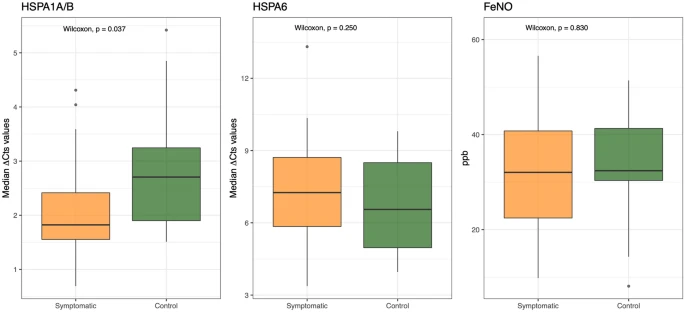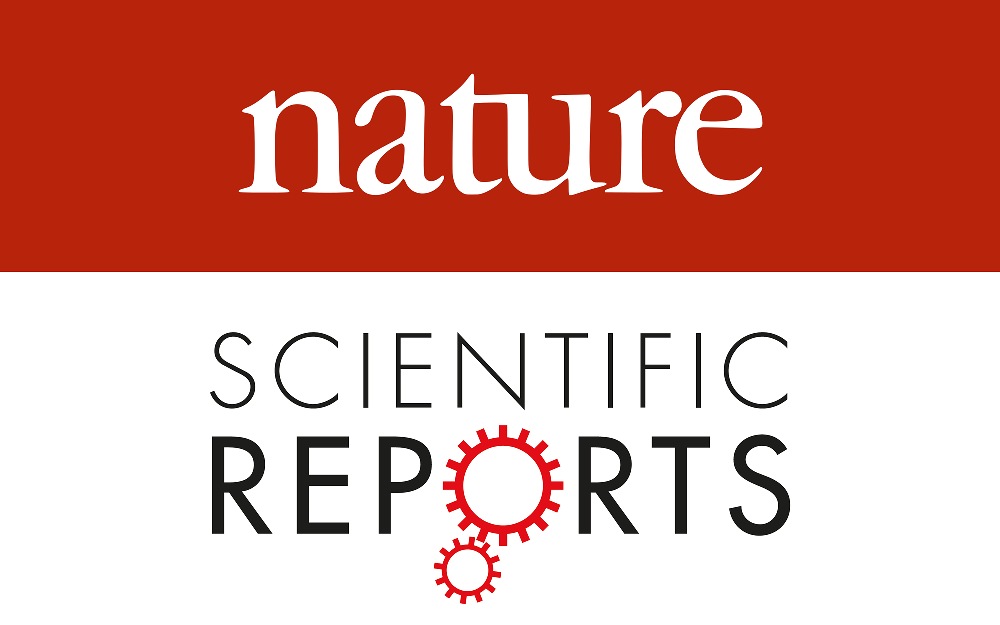Allergic rhinitis and asthma are the most common causes of chronic inflammation of the upper and lower airways in childhood. However, a nasal biomarker that can link to pulmonary inflammation is yet to be found.
 |
Boxplot of median ∆Ct values for HSPA1A/B and HSPA6 transcripts
and ppb values for FeNO in the symptomatic AR patients (orange)
and control group (green). Higher ∆Ct values stand for lower mRNA
expression. |
The present paper aims to investigate the possible role in inflammation of two inducible 70-kDa Heat Shock Proteins (HSP70) members, HSPA1A/B and HSPA6, in nasal mucosa cells of allergic children through their mRNA expression analysis, and their correlation to both spirometric and FeNO values. The relationship between FeNO in lower airways and ∆Cts of HSPA1A/B in nasal mucosa seems to be influenced by clinical symptoms regardless of age, sex, and sensitization patterns.
Therefore, HSP70 expression, as well as FeNO levels, could have a predictive capability to identify lower airways inflammation and thus to recognize rhinitic children having a potential risk of asthma development.
Download PDF


No comments:
Post a Comment